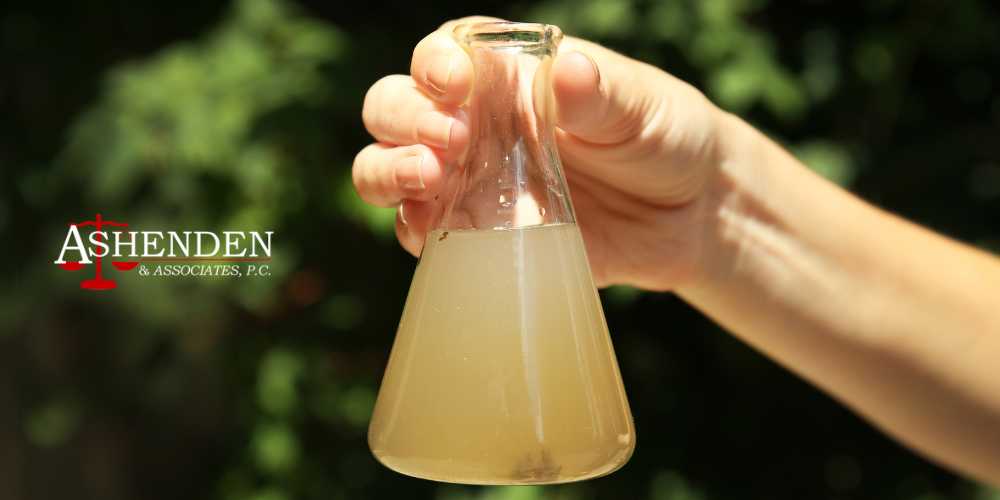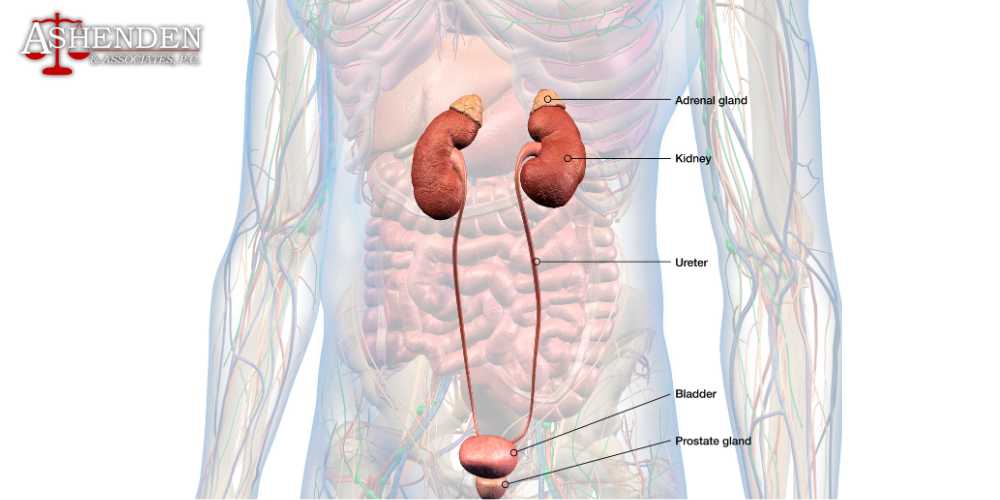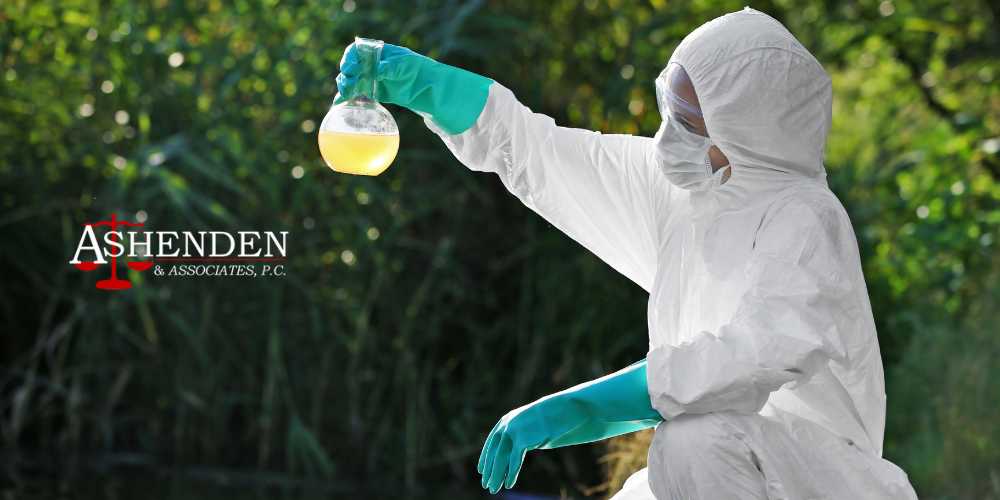We Go The Extra Distance For Our Clients
Class Action and Product Liability Practice Areas
Atlanta and Sandy Springs Camp LeJeune Prostate Cancer Lawsuit
Camp LeJeune Marine Corps Base residents unknowingly drank, bathed in, and cooked with toxic water that was contaminated with dozens of toxic chemicals and other toxic substances over 30 years ago. Only now are we beginning to grasp the devastating consequences of the toxic water at Camp LeJeune. Prostate cancer caused by Camp LeJeune water, now commonly referred to as ‘Camp LeJeune prostate cancer,’ is just one of many types of cancer that medical professionals are connecting to the toxic water exposure at Camp LeJeune. Military service members and families who have suffered can now seek financial compensation under the Camp LeJeune Justice Act.
Our dedicated Sandy Springs Camp LeJeune water contamination lawyers are here to assist Camp LeJeune prostate cancer victims in pursuing financial compensation through a Camp LeJeune prostate cancer lawsuit.
Call a Camp LeJeune lawsuit attorney at Ashenden & Associates at 770-394-8909 to schedule a free consultation.

What Happened at Camp LeJeune Marine Corps Base?
Camp LeJeune Marine Corps Base, located in North Carolina, has a storied history as a vital military installation under our Federal Government. Unfortunately, the water at Camp LeJeune has also gained notoriety due to water contamination issues spanning several decades.
Between the 1950s and 1980s, the water supply at Camp LeJeune was contaminated with numerous types of toxic chemicals and volatile organic compounds, including benzene, vinyl chloride, trichloroethylene (TCE), and perchloroethylene (PCE). These toxic substances in the drinking water were traced to leaking underground storage tanks and improper disposal practices on the base.
It wasn’t until the Environmental Protection Agency stepped in that steps were taken to fix the drinking water supply and warn residents of chemical exposure and the elevated risk for presumptive illness and health issues.
The contaminated water at Camp LeJeune exposed military service members, their families, and civilian workers to vinyl chloride and other toxic substances, leading to a myriad of seemingly mysterious health conditions and adverse health effects. Decades later, the repercussions of the Camp LeJeune water contamination are still unfolding, with numerous injured clients developing serious health conditions, including prostate cancer.
Health Complications From Camp LeJeune Water Contamination
The contaminated water at Camp LeJeune exposed thousands of service members, their families, and civilian workers to a cocktail of dangerous chemicals. The devastating consequences of this chemical exposure include a wide range of health issues emerging over time. Prostate cancer is only one of the health effects caused by the contaminated water at Camp LeJeune. According to the Agency for Toxic Substances, the Environmental Working Group, and the Disease Registry, other diseases and health conditions connected to the toxic water supply include:
Cancer Caused by Camp LeJeune Water
Cancers caused by Camp LeJeune water contamination include breast cancer, liver cancer, esophageal cancer, kidney cancer, bladder cancer, lung cancer, colon cancer, rectal cancer, ovarian cancer, cervical cancer, Leukemia, Non-Hodgkin’s lymphoma, multiple myeloma, Myelodysplastic syndrome, and various child cancers.
Camp LeJeune Birth Defects
Camp LeJeune birth defects include stillbirths, misarriages, and ongoing fertility issues.
Neurological and Mental Disorders Caused by Camp LeJeune Water
Neurological disorders caused by Camp LeJeune water include Parkinson’s Disease, Amyotrophic Lateral Sclerosis (ALS), and other neurological and mental issues.
The Disease Registry also outlines other health conditions, such as Aplastic anemia, fatty liver disease, hepatic steatosis, cardiac conditions, Scleroderma, and kidney failure.

What is Prostate Cancer?
Prostate cancer is a slow-progressing malignancy of the prostate gland, a male reproductive organ that produces seminal fluid. Often asymptomatic in early stages, prostate cancer prognosis is generally favorable, sometimes not requiring immediate treatment.
Men who develop prostate cancer at localized stages have nearly a 100% five-year survival rate. Active surveillance, such as PSA tests, enhances the likelihood of successful treatment and extends survival rate expectancy to potentially normal durations with timely and effective medical treatment.
Common Prostate Cancer Symptoms
While prostate cancer often progresses slowly and may not exhibit symptoms in its early stages, some common warning signs and symptoms include:
Frequent urination
Difficulty starting or stopping urination
Weak or interrupted urine flow
Urine blood
Pelvic area pain
Erectile dysfunction
Bone pain, especially in the spine, hips, or ribs (indicating advanced disease).
The Connection Between Camp LeJeune and Prostate Cancer
The link between Camp LeJeune’s water contamination and prostate cancer is a matter of profound concern, with the U.S. Department of Veterans Affairs (VA) acknowledging the detrimental impact of the contaminated water on the health of military personnel, civilian workers and their family members stationed at the base. Research indicates an increased risk of various cancers, including prostate cancer, for individuals exposed to the toxic substances present in the Camp LeJeune water supply.
According to the VA, the water contamination has been linked to a broad spectrum of cancers, with compelling evidence highlighting the association between exposure to benzene – a key contaminant found at Camp LeJeune – and an increased likelihood of prostate cancer development. A notable study featured in the December 2022 issue of Environmental Epidemiology reported that benzene exposure increases the risk twofold of developing prostate cancer, underscoring the gravity of the health issues associated with the water contamination at Camp LeJeune.

What is the Camp LeJeune Justice Act?
The Camp LeJeune Justice Act is federal legislation enacted in 2022 to provide relief to individuals affected by the water contamination at Camp LeJeune. This legislation allows eligible individuals to file claims against the U.S. federal government for compensation related to the health consequences of exposure to contaminated water.
The Act acknowledges the government’s responsibility for the contamination and aims to hold it accountable for the resulting health issues. Working with experienced Sandy Springs personal injury attorneys like those at Ashenden & Associates can help you navigate the complexities of the Camp LeJeune Justice Act and pursue the compensation you deserve.
Financial Compensation for Those Who Developed Prostate Cancer at Camp LeJeune
If you have been diagnosed with prostate cancer after serving at Camp LeJeune, you may be eligible for compensation through various avenues. Ashenden & Associates can guide you through the process and help you explore compensation options such as Camp LeJeune VA benefits and participation in a Camp LeJeune water contamination lawsuit.
Camp LeJeune VA Benefits
The Department of Veterans Affairs (VA) offers benefits to eligible veterans who have been affected by the contaminated water at Camp LeJeune. These benefits may include coverage for medical treatment, disability compensation, and other forms of assistance. However, navigating the VA benefits system can be complex, and having legal representation can significantly enhance your chances of securing the benefits you deserve.
Camp LeJeune Water Contamination Lawsuit
In addition to VA benefits, individuals affected by Camp LeJeune’s water contamination have the option to pursue legal action against those responsible for the contamination. Filing a lawsuit allows victims to seek compensation for medical expenses, pain and suffering, lost wages, and other damages resulting from their Camp LeJeune prostate cancer diagnosis.

How To File a Camp LeJeune Prostate Cancer Lawsuit in Sandy Springs or Atlanta, GA
If you or a loved one have been diagnosed with prostate cancer after being stationed at Camp LeJeune during the contaminated period, taking legal action may be an option. Here’s a general guide on how to proceed:
Contact a Sandy Springs Camp LeJeune Attorney
The first step in pursuing a Camp LeJeune prostate cancer lawsuit is to consult with an experienced attorney. Ashenden & Associates specializes in handling Camp LeJeune claims and can provide the guidance, support, and legal services you need. During the initial consultation, one of our attorneys will review the details of your case, assess the connection between your prostate cancer diagnosis and Camp LeJeune, and discuss the legal options available to you.
Gather Evidence to Connect Your Prostate Cancer to Camp LeJeune
Gathering compelling evidence to establish a direct connection between your prostate cancer diagnosis and your service at Camp LeJeune is a critical step in building a strong legal case. To strengthen your claim, it is imperative to focus on obtaining relevant medical records and military service records that substantiate the link between your health condition and exposure to the contaminated water at Camp LeJeune.
Camp LeJeune victims must meet the following requirements in order to file a claim:
- You were based at or served at Marine Corps Base Camp Lejeune or Air Station New River for a total of at least 30 days from 1953 through 1987.
- You were a family member of a military member stationed at Camp Lejeune or Air Station New River for at least 30 days between the years of 1953 to 1987.
- You did not receive a dishonorable discharge.
- You have been diagnosed with prostate cancer.
Ensuring that your case aligns with these requirements enhances the likelihood of a successful claim. Thorough documentation and adherence to these criteria will serve as a foundation for demonstrating the connection between your prostate cancer and your service at Camp LeJeune, ultimately strengthening your position in seeking compensation for the health challenges you now face.
File a Camp LeJeune Prostate Cancer Claim
Once the necessary evidence is gathered, your attorney will help you file a Camp LeJeune prostate cancer claim. This involves submitting the required documentation and legal pleadings to initiate the legal process. Your attorney will navigate the complexities of the legal system on your behalf, ensuring that your rights are protected throughout the process.
Negotiate Your Prostate Cancer Settlement
In many cases, Camp LeJeune claims are resolved through settlement negotiations rather than going to trial. Your attorney will engage in negotiations with the responsible parties or their insurers to reach a fair settlement that compensates you for your medical expenses, pain and suffering, and other damages. Having skilled negotiators on your side is essential for achieving a favorable outcome.
Damages for Camp LeJeune Water Contamination
The damages sought in a Camp LeJeune prostate cancer lawsuit may include:
- Medical Bills: Compensation for the costs of diagnosis, treatment, and ongoing medical care related to prostate cancer.
- Lost Wages: Reimbursement for income lost due to the inability to work during treatment and recovery.
- Pain and Suffering: Compensation for the physical and emotional distress caused by the cancer diagnosis and its impact on your life.
- Wrongful Death Damages: In cases where an individual has lost their life due to Camp LeJeune-related prostate cancer, surviving family members may pursue wrongful death damages. A Sandy Springs wrongful death attorney can help you obtain the justice and damages you deserve.
The specific damages sought will vary based on the unique circumstances of each case, and your attorney will tailor the legal strategy to maximize the compensation you deserve.

How Long Do I Have to File a Camp LeJeune Lawsuit in Georgia?
Time is of the essence when considering filing a Camp LeJeune prostate cancer lawsuit, particularly under the Camp LeJeune Justice Act. The deadline to submit claims under this act is set in August 2024. After this date, individuals may still pursue legal action, but it would involve filing an individual lawsuit rather than utilizing the provisions of the Act.
Upon filing a claim under the Camp LeJeune Justice Act, the Navy Judge Advocate General’s Corps (JAG) holds the responsibility of reviewing the claim. This process typically takes 180 days, during which the JAG may either accept or deny the claim. If the claim is denied or if there is no response within the stipulated time frame, the claimant has the option to proceed with an individual lawsuit.
Given the complexities involved in such legal proceedings, it becomes crucial to have a strong and experienced attorney on your side. A Sandy Springs Camp LeJeune attorney at Ashenden & Associates can guide you through the intricacies of the legal process, ensuring that your rights are protected and increasing the likelihood of a favorable outcome in your pursuit of justice and compensation.
Sandy Springs Camp LeJeune Lawyer
If you or a loved one have developed prostate cancer, birth defects, or other diseases and believe they are connected to the hazardous chemicals in the water at Camp LeJeune, the legal team at Ashenden & Associates is here to help. Our experienced attorneys understand the complexities of Camp LeJeune prostate cancer cases, and we are dedicated to advocating for the rights of those affected by contaminated water at Camp LeJeune.
Contact us today at 770-394-8909 to schedule a free case evaluation, explore your legal options, and take the first step toward seeking the compensation you deserve. Our Sandy Springs Camp LeJeune attorneys are committed to providing personalized and effective legal representation for individuals facing the challenges of prostate cancer linked to their service at Camp LeJeune.
